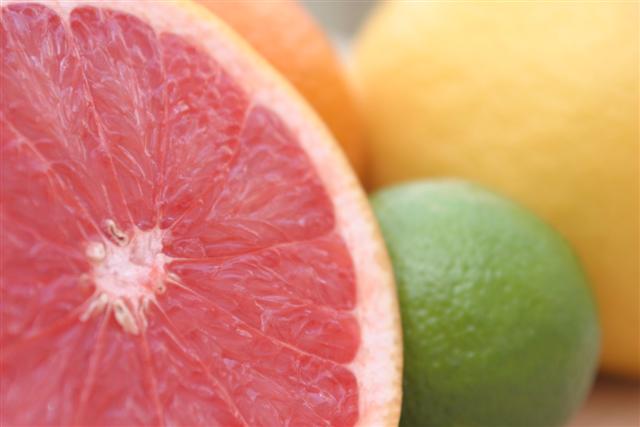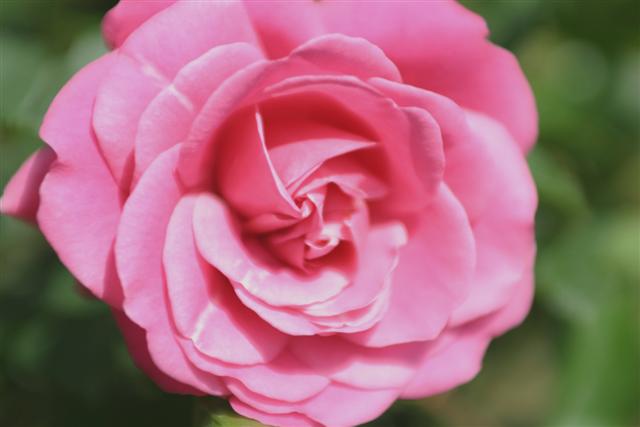- Home
- About Us

Citrus forms an important part of our product range
Read moreAbout Us
- How We Work

We have own roses under cultivation in Bulgaria
Read moreHow We Work
- News
- Products
- Services

We ship to more than 50 countries worldwide
Read moreServices
- Contact Us
- Home
- Products
Products
We are committed to providing only the highest quality of flavour and fragrance ingredients on demand to our customers worldwide. Our diverse product list offers a selection of over 250 natural and synthetic aroma chemicals, coolants, essential oils and extracts. Even if you cannot find a specific product you are looking for, do contact us as we may still be able to help.
Filter products by:
Clear allKeyword or product code
Palmarosa Oil Cymbopogon martini (Roxb.)
Palmarosa, which is from the Lemongrass genus, has its main origin in India. Geraniol is the main component of this oil, which is obtained by steam distillation of the grass.
EU Natural | DMA Code: 800873 | CAS Number: 84649-81-0 | FEMA Number: 2831
Patchouli Oil Dark Pogostemon spp.
Patchouli is grown in India and China but the bulk of the oil traded comes from Indonesia. The production is in the hands of numerous small farmers for whom it is often a secondary crop and thus a separate source of income.They can distill the herb and keep some small stock of oil as a form of saving. They sell to collectors all through the year depending on their need for cash. The dark oil is becoming rarer as the old iron drums and pipes used as distillation equipment are gradually being replaced by steel, which produce a light coloured oil.
EU Natural | DMA Code: 800405 | CAS Number: 84238-39-1 | FEMA Number: 2838
Patchouli Oil Light Pogostemon spp.
Patchouli is grown in India and China but the bulk of the oil traded comes from Indonesia. The production is in the hands of numerous small farmers for whom it is often a secondary crop and thus a separate source of income. They can distill the herb and keep some small stock of oil as a form of saving. They sell to collectors all through the year depending on their need for cash. The dark oil is becoming rarer as the old iron drums and pipes used as distillation equipment are gradually being replaced by steel, which produce a light coloured oil.
EU Natural | DMA Code: 800713 | CAS Number: 84238-39-1 | FEMA Number: 2838
Peppermint Oil Mentha piperita
Mentha piperita is an important crop in the northern part of the USA but it is also widely grown in the eastern part of Uttar Pradesh, India. The percentage content of menthofuran in the essential oil is the main factor that determines the selling price. This percentage can vary from year to year and also between the first and second harvest within one season.
EU Natural | DMA Code: 800408 | CAS Number: 84082-70-2 | FEMA Number: 2848
Peppermint Oil Arvensis DMO Mentha arvensis L.; Cornmint oil dementholised
The cultivation of mentha arvensis is an important cash crop for thousands of farmers in Uttar Pradesh. A crude essential oil is produced in basic field distillation units and then later sold to collectors for further distilling in larger local factories. This oil is the starting material for the manufacture of natural menthol. Ninety percent of the global production is located in India. Crude mentha arvensis is a commodity traded on the MCX (Multi Commodity Exchange) in Delhi and can be prone to much speculation.
EU Natural | DMA Code: 800406 | CAS Number: 90063-97-1 | FEMA Number: 4219
Peru Balsam Myroxylon pereirae Klotzsch
Peru Balsam is nowadays mainly produced in El Salvador but takes its name from the fact that it was originally exported from Peru in the 17th century.
EU Natural | DMA Code: 800544 | CAS Number: 8007-00-9 | FEMA Number: 2117
Petitgrain Oil Paraguay Citrus aurantium L.
This oil is distilled from the young leaves and twigs of bitter orange oil trees in fairly basic distillation units in the countryside of Paraguay. Orange blossom oil and Neroli oil come from the same species.
EU Natural | DMA Code: 800413 | CAS Number: 72968-50-4 | FEMA Number: 2855
raspberry ketone 4-(P-hydroxyphenyl)-2-butanone; 4-(4-Hydroxyphenyl)butan-2-one
A phenolic ketone with the molecular formula C10H12O2, it is found in nature and has a sweet, berry, jam, raspberry-like odour.
Synthetic | DMA Code: 800212 | CAS Number: 5471-51-2 | FEMA Number: 2588
raspberry ketone natural 4-(4-Hydroxyphenyl)butan-2-one; 4-(P-hydroxyphenyl)-2-butanone
A phenolic ketone with the molecular formula C10H12O2, it is found in nature and has a sweet, berry, jam, raspberry-like odour.
EU Natural | DMA Code: 800293 | CAS Number: 5471-51-2 | FEMA Number: 2588
Rose Absolute Turkish Rosa damascena
The absolute, which is a reddish, viscous liquid, is obtained by solvent extraction of the freshly collected rose petals.
EU Natural | DMA Code: 800892 | CAS Number: 84604-12-6 | FEMA Number: 2988
Rosemary Oil Rosmarinus officinalis L.
Rosmarinus officinalis is grown around the Mediterranean coastline. Its name is derived from the Latin meaning "dew of the sea," as it is said that in many locations the only water it needs to live is the humidity in the air carried from the sea. For the best quality oil, only the fresh flowering tops should be distilled but some producers use the whole plant, thus yielding a lower grade oil.
EU Natural | DMA Code: 800417 | CAS Number: 8000-25-7 | FEMA Number: 2992
Rose Oil Bulgarian Rosa damascena Mill.
There are thousands of different types of roses, however Bulgarian rose oil is distilled from rosa damascena. The essential oil (or rose otto) is distilled from the freshly collected petals.
EU Natural | DMA Code: 800416 | CAS Number: 90106-38-0 | FEMA Number: 2989
Sage Oil Salvia officinalis L.
EU Natural | DMA Code: 800924 | CAS Number: 84082-79-1 | FEMA Number: 3001
Sandalwood Oil Santalum spp.
The sandalwood is a parasitic tree. The wood is used for religious ceremonies in India and Sri Lanka and the oil production is heavily regulated when not completely banned. Other varieties are available from origins such as Indonesia, Australia and South African but the oil profiles are all quite different in each region.
EU Natural | DMA Code: 800418 | CAS Number: 84787-70-2 | FEMA Number: 3005
Spearmint Oil 60% Mentha spicata
Made from Mentha spicata, USA, India, and China are the main sources of spearmint oil. Each origin has its own specific composition profile meaning that one cannot be directly substituted for another, however blending can overcome this. Our Chinese oil has a minimum 60% natural carvone content.
EU Natural | DMA Code: 800421 | CAS Number: 84696-51-5 | FEMA Number: 3032
styrallyl acetate EU natural alpha-methylbenzyl acetate
An ester with the molecular formula C10H12O2, it is found in nature and has a green, leafy, musty, gardenia-like odour.
EU Natural | DMA Code: 801047 | CAS Number: 93-92-5 | FEMA Number: 2684
sulfurol 4-methyl-5-hydroxy ethyl thiazole
A thiazole with the molecular formula C6H9NOS, it is found in nature and has a milky, yeasty, bready, nutty-like odour.
Synthetic | DMA Code: 800214 | CAS Number: 137-00-8 | FEMA Number: 3204
Tangerine Oil Citrus reticulata
Tangerine, as a sub-group of Mandarin, originated from China but was later introduced to Europe and Americas. Cravo tangerine is the type most commonly grown in Brazil.
EU Natural | DMA Code: 800423 | CAS Number: 93686-22-7 | FEMA Number: 3041
Tangerine Oil Dancy 5-Fold Citrus reticulata
The high terpene content in citrus oils can limit their application in water based food and beverage consumer products. Partial or full deterpenation of the oil results in improved solubility and varying odour profiles depending on both the method and extent to which it is carried out.
EU Natural | DMA Code: 800424 | CAS Number: 93686-22-7 | FEMA Number: 3041
Tarragon Oil Artemisia dracunculus L.
The oil is extracted by steam distillation of the leaves. Tarragon is cultivated worlwide but the largest volumes of oil come from the eastern regions of Europe. The principal constituent is estragole/ methyl chavicol at around 70%.
EU Natural | DMA Code: 800925 | CAS Number: 90131-45-6 | FEMA Number: 2412
Email Sign up
You have been successfully signed up to the De Monchy newsletter
What you'll receive in every monthly De Monchy Newsletter
- A round up of the latest news from the flavour & fragrance industry.
- Insight into the effects of currency fluctuations, political unrest and severe weather on a range of flavour and fragrance raw materials.
- Our opinion on likely market movements including buy recommendations and suggestions of what to watch.

